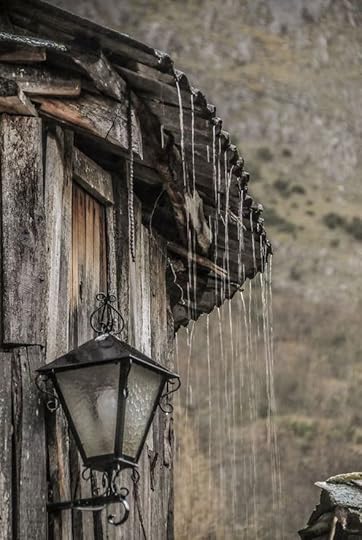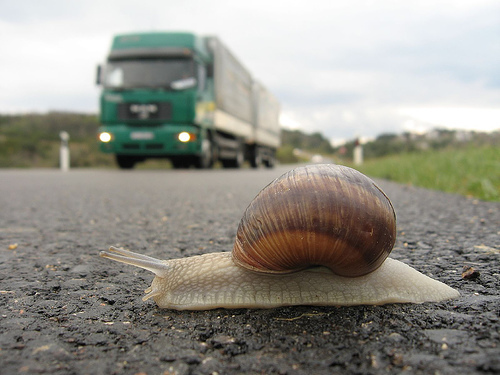The rain in Spain … mainly on the … ; What does it mean and where’s it from?
Everyone knows the saying “the rain in Spain…”, but where does it come from and what does it mean?
Let’s get one thing straight, first: the exact original wording of this phrase that has taken root so strongly in English. Is it:
Take Our Poll
I had always assumed that it came from the 1964 film of the musical My Fair Lady, starring Audrey Hepburn and Rex Harrison (or “Sexy Rexy”, as my mother and other devoted fans used to call him). It is, it seems, several decades older: it first appeared in the 1938 film version of George Bernard Shaw’s Pygmalion. That play was notorious for the phrase “Not bloody likely”, the first use of the b***** word on the British stage (how times have changed!), and the film retained it, thereby becoming the first film in which it appeared. The film spawned a stage play (1956) which begat My Fair Lady (1964).
It has, of course, no connection with the realities of Spanish hydrology. Instead, it is an elocution exercise – one that even today some pronunciation Nazis might approve of. Being a nineteenth-century cockney, Eliza Doolittle, the heroine of both play and musical, habitually made rain sound like the river Rhine, and thus, by not using the standard or prestige pronunciation, immediately identified herself as socially suspect. “The rain in Spain stays mainly in the plain” was the remedial drill imposed on her by her mentor, Professor Higgins – or, as she would call him, ’Iggins.
Generally misquoted
It’s interesting that most people in the small sample I’ve got from the poll on this blog, and from Twitter, think of the phrase as “The rain in Spanish falls mainly on the plain.” The change is logical. What does rain generally do? It falls. And where does it fall? On (or onto) something. The changes to the original show speakers amending it to fit their knowledge of English. In that way, they are rather like eggcorns.
This earwormy phrase has been translated into languages as disparate as Estonian, Icelandic, and Farsi, and many others besides. Translating the English word for word into another language has scant chance of producing anything remotely catchy, so each language makes use of its own rhythmic and rhyming resources.
Thus, the Danish version translates back into English as “A snail on the road is a sign of rain in Spain”, the Italian as “The frog in Spain croaks in the country”, while the Portuguese completely removes any mention of Spain: “Behind the train, the troops come trotting” [1]. (Even from the English, you can see that words beginning with tr are what holds it together.)
If you are enjoying this blog, and finding it useful or interesting, there’s an easy way for you to find out when I blog again. Just sign up (in the right-hand column, above the Twitter feed) and you’ll receive an email to tell you. “Simples!”, as the meerkats say. I shall be blogging semi-(ir)regularly about issues of English usage, word histories, and writing tips. Enjoy!
Spanish has played with it in at least three versions, two of which include the word for “rain”. It should be easy to work out what that is.
1 “La lluvia en Sevilla es una pura maravilla.”
2 “El juez jugó en Jerez al ajedrez.”
3 “La lluvia en España bellos valles baña.”
Versions 1 and 3, rhyme, as you’ll hear if you say them out loud. They also contain the double ll, which is nowadays generally pronounced similarly to the English y of yes, or, in some parts of Latin America, like the j of judge.
So, rewriting the words with double ll in 1) to show their pronunciation gives us something very approximately like yoovia, seviya, and maraviya.
Verson 2 is a bit of a tongue-twister (un trabalenguas) for those whose mother tongue isn’t Spanish. It translates as “The judge played chess in Jerez”, Jerez being, incidentally, the city that gave English the word sherry.
Version 3 (“The rain in Spain bathes beautiful valleys”) includes the word bello. Unlike Italian bello, which is commonly used in everyday language, Spanish bello is rather more refined and literary. The everyday word to say that something is beautiful is hermoso.
So, where does the real rain in Spain fall? As Andrew Eames memorably put it: “The rain in Spain doesn’t really fall upon the plain at all; on the contrary, it favours the country’s rocky, steep northwestern corner, where Iberia headbutts the Atlantic. Galicia, in fact.” [2]
[1]
Dansk: En snegl på vejen er tegn på regn i Spanien
italiano La rana in Spagna gracida in campagna
português Atrás do trem as tropas vêm trotando
[2]
Something Different for the Weekend, p. 143: Bradt Travel Guides, Chalfont St Peter, England.
Filed under: Meaning of words, Spanish, Word origins Tagged: My Fair Lady







